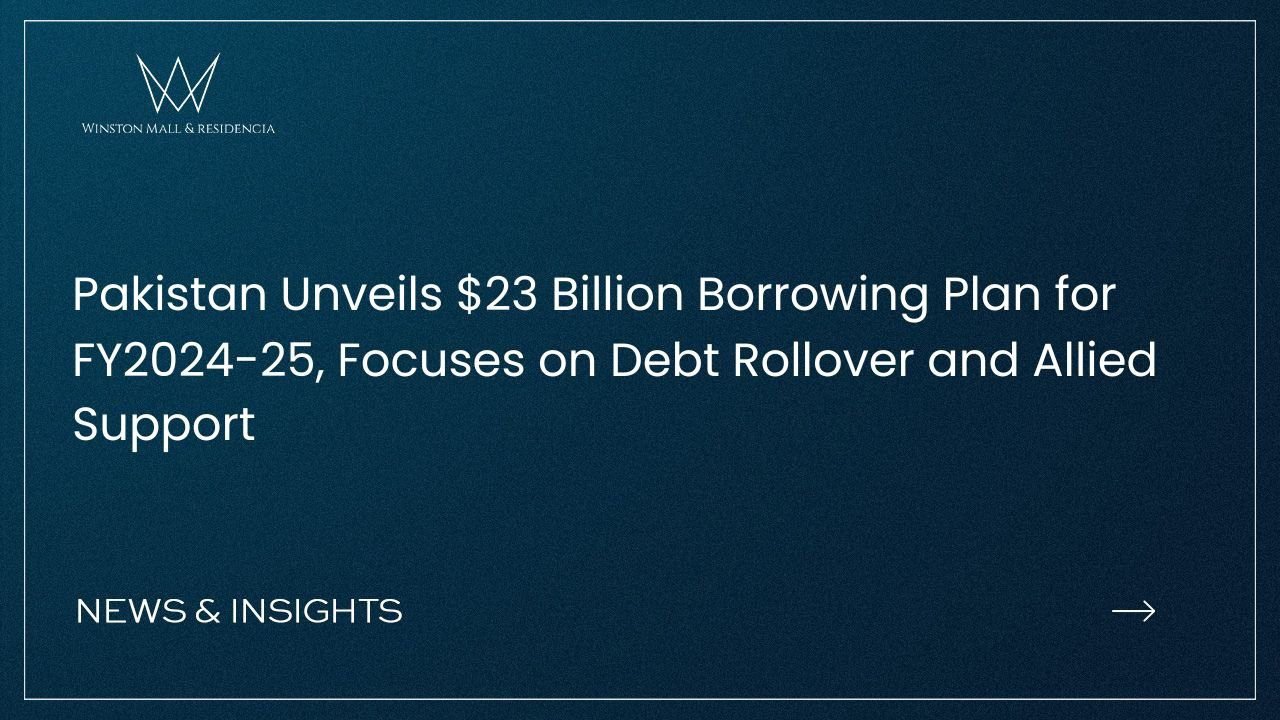The government of Pakistan has unveiled an ambitious borrowing plan for the upcoming fiscal year 2024-25, aiming to secure at least $23 billion in funds to meet its financial obligations and bolster foreign exchange reserves. The plan, detailed in the latest budget documents, includes a significant $12 billion rollover of bilateral debt and an additional $3 billion in support from the United Arab Emirates (UAE) to help stabilize the balance of payments.
According to the budget breakdown, $19 billion of the total borrowing is earmarked for budget financing and strengthening foreign exchange reserves. The government has allocated $3.9 billion for foreign commercial loans but has not anticipated any new debt from foreign banks. Notably, the borrowing plan does not account for any loans from the International Monetary Fund (IMF), indicating a shift in the government’s approach to managing external debt.
In addition to the commercial loans, Pakistan expects to roll over $5 billion in deposits from Saudi Arabia, a key ally in the region. However, the budget projections do not include any new loans specifically designated for importing petrol, suggesting a focus on managing existing debts and securing alternative sources of support.
Read More:- Pakistan’s T20 World Cup Hopes Hinge on Florida Weather as USA Faces Ireland
The comprehensive borrowing strategy underscores the government’s efforts to navigate a complex economic landscape and maintain financial stability in the face of ongoing challenges. By leveraging a combination of bilateral debt rollovers and support from allied countries like the UAE and Saudi Arabia, Pakistan aims to address its budgetary needs and fortify its foreign exchange reserves without relying on new commercial loans or additional assistance from the IMF.
The decision to avoid new loans from foreign banks and the IMF reflects a cautious approach to managing external debt and preserving financial autonomy. This strategic move allows Pakistan to maintain greater control over its financial future while still securing the necessary funds to support its development goals and economic growth.
As Pakistan enters the new fiscal year, the $23 billion borrowing plan will play a crucial role in stabilizing the economy and laying the foundation for long-term financial sustainability. The allocation of funds across various purposes, including the rollover of existing debts and securing deposits from allied nations, demonstrates a well-considered approach to navigating the complexities of the global financial landscape.
While the road ahead may present challenges, Pakistan’s proactive borrowing strategy and focus on strategic partnerships signal a commitment to fiscal responsibility and economic resilience. As the nation moves forward, the successful implementation of this plan will be key to ensuring continued progress towards financial stability, growth, and prosperity for the people of Pakistan.
Winston Mall: please contact +92-314-5166334 or visit https://winstonmall.com/



